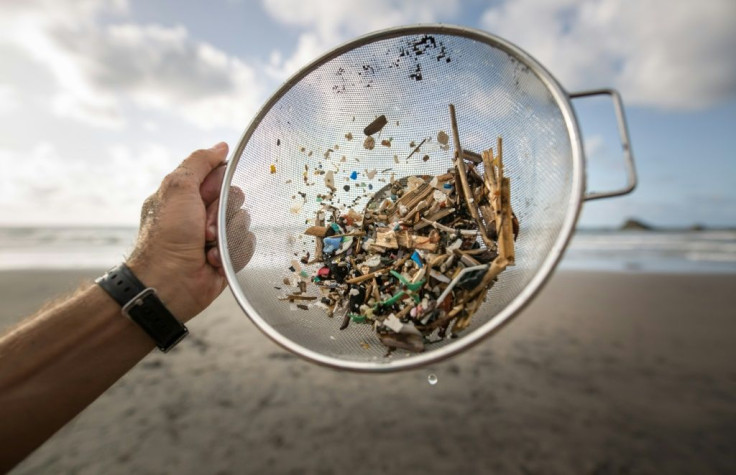There's More than Milk in That Baby Bottle

Microplastics. Defined as plastic pieces the size of a sesame seed or smaller, microplastics have been found in indoor and outdoor air, the muscles of fish and drinking water.
Microplastics (MP) result from plastic trash that is breaking down, or decomposing. And while researchers don’t know the impact of MPs on human health, one study’s authors say we need to find out.
Researchers at Trinity College Dublin (Ireland) measured the number of MPs in baby formula after the formula had been prepared according to World Health Organization (WHO) guidelines. They then estimated how many MPs 12-month-old babies may be ingesting through plastic bottles. The numbers varied across the 48 worldwide regions studied, but they demonstrated “that infant exposure to microplastics is higher than was previously recognized.”
Bottle-fed babies in North America could be drinking more than 2 million MP particles each day , suggested the study. To put this number in perspective, a 2019 study published in Environmental Science and Technology estimated that the average person ingests between 39,000 and 52,000 MP particles each year .
The Trinity College study found that sterilizing baby bottles and then adding hot water and vigorously shaking the bottles released a much higher number of MPs than when the sterilized bottles were filled with formula at room temperature.
There are things parents can do to keep some MPs out of their baby’s formula, said study author John Boland, PhD, in an article posted by Trinity College. The article provided the following steps for preparing formula to limit the number of MPs released from plastic baby bottles.
Sterilizing the baby bottles:
- Follow the WHO guidelines for sterilizing bottles.
- Then boil water in a glass or stainless-steel container, and let the water cool to room temperature.
- Use the cooled water to rinse the sterilized bottle at least three times.
Preparing the formula:
- Heat water for formula preparation in a glass or stainless-steel container to at least 158 F.
- Mix measured formula with the heated water, and then cool the formula to room temperature.
- Add the room-temperature formula to the sterilized and rinsed bottle.
Cautions
- Never use a microwave to heat formula. Microwaves can cause “hot spots” that can burn a baby’s mouth.
- Don’t rewarm formula in plastic bottles or shake bottles vigorously.
The take home
Scientists may not know how microplastics are affecting our children’s health, but parents can limit their baby’s exposure to MPs by following the steps above when preparing infant formula.
Published by Medicaldaily.com



























